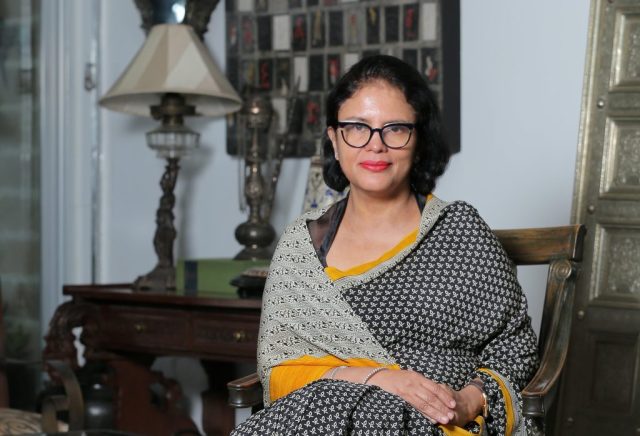Dr. Rubana Huq is a prominent Bangladeshi business leader and social activist. She is the current Vice-chancellor of Asian University for Women (AUW) since February 2022. She is the chairperson of Mohammadi Group, a Bangladeshi conglomerate. She was featured in BBC 100 Women in 2013 and 2014. She was elected as the first female president of BGMEA served during 2019–2021.
Let’s learn about her journey.
The InCAP: Many small and medium scale factories have closed their operations in the last few years. Do you think this is an alarming message for the RMG industry?
Dr. Rubana Huq: Yes, this is alarming for two reasons. One is their huge contribution to our exports, and the other one is that SMEs are the vehicles through which new entrepreneurs join the industry. If SMEs cannot be protected and promoted, it will not be helpful for the long term growth plan of the industry. There are numerous small buyers who are sourcing from Bangladesh; if we don’t have SMEs, we will lose that market as well. Moreover, SMEs are needed to meet the growing need for small and value-added-added orders as online sales are on the rise.
The industry has attached with more than 4 million workers, amongst whom 85 percent are women! An excellent example for the rest of the world today. Sewing and women have created a wonderful relationship in Bangladesh. But, how much is the garment sector influencing other workplaces for better working experience for women? And how assured is the work-friendly environment in the RMG sector for a woman in Bangladesh today?
I think the RMG sector is playing the role of a pioneer in the industrial sector in Bangladesh. Its creating opportunities for less privileged women workers to join the mainstream of the economy, lead a productive life, become self-aware, and skilled. These days workers are becoming more aware of their rights and safety. So I think the RMG industry is contributing immensely as a role model for other industrial sectors. The RMG factories are operating under the local and global spotlight. Our factories are continuously being inspected by national and international audit teams for occupational safety and health, and compliance issues.
RMG sector is a massive opportunity for the employment of the less educated or illiterate workforce of Bangladesh. How would the workforce be affected by the process of automation? What is the contingency plan in place?
The fourth industrial revolution is reshaping the entire global landscape of industrialization, manufacturing, and production. We barely have any scope to avoid it, and rather we need to embrace it to make ourselves prepared and reap the benefits. It’s true that 4IR will make a lot of low-skilled jobs obsolete through automation; it will have an impact on jobs, especially less-educated workers in the RMG sector. We are working with Government and development partners, especially with a2i, how we can reskill/upskill them to take challenges of advanced manufacturing technologies or at least to train them up for other industries where they will find opportunities.
What are the biggest considered threats and problems in the RMG sector of Bangladesh today?
Overcapacity and over-concentration on products and markets, the impact of LDC graduation and global political dynamics affecting trade, currency exchange rates, lack of innovation, are some of the major challenges for us at present.
What would you consider to be three positive signs of the RMG industry, which could cause Bangladesh to boom within the next five years?
We have all the reasons to believe in our fortune as we are a resilient nation led by the daughter of Bangabandhu Sheikh Mujibur Rahman. Our past is our confidence, yet just to mention three positive signs –
a) Bangladesh’s unparalleled progress in establishing a sustainable apparel industry in all regards, be it safety, workers being, or environment.
b) Transformation is happening in the industry as most of our new factories are state of the art ready to take challenges of the future. We only secure 6.5% of the global clothing trade, so we have clear opportunities.
c) Government is heavily investing in mega projects which is a huge sign of Bangladesh’s preparedness toward more investments and industrialization.
The InCAP: It was such a pleasure talking to you. Thank you, Dr. Rubana Huq!
Dr. Rubana Huq: Such a pleasure for me. Thank you so much to all of you. All the warm wishes for The InCAP!
To acknowledge more Cover Stories, Please Click Here!

















